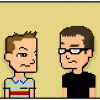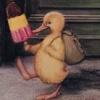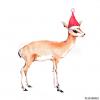Science, it definitely still works bitches.
-
SpaceX have their next Spaceship SN9 ready to fly, FAA been holding them up, but likely flying this week coming. They’ve already got SN10 on it’s launch pad, the pace of their development is amazing.
During remote working I’ve spent too much time watching for tank farm activity on the various live streams.Things can only get better. -
Keep them coming Gurt, they go onto my youtube list to watch later and end up getting viewed when i do the cooking. I do like sabine's stuff.
-
A lot of media hype over Perseverance Mars landing today, let’s hope for a smooth landing. The drone footage alone will be cool to see once it’s up and running.Things can only get better.
-
This is a potential game-changer. Toyota will have a standalone, changeable, hydrogen fuel cell on sale this spring. Plug and play for any electric vehicle maker.
https://media.toyota.co.uk/2021/02/toyota-develops-compact-hydrogen-fuel-cell-system-module-for-customer-use/ -
Anyone recall the ionic liquid that was being worked on where you could refill batteries with it, much like at a petrol pump.
-
Nope. But I got a Porsche press release this week about them building a synthetic fuel plant. They’re betting big on the idea of developing sustainable alternatives to petrol which can be used in existing engines.
-
After many years of looking at it on the shelf I am reading Hawking's A Brief History of Time - it's a nice illustrated hardback edition. So lots of pictures to help out.
Any other laymen make it through this? I have zoned out a few times.Holding the wrong end of the stick since 2009. -
Read my brother's copy when I was about 14. Always meaning to reread as a "grown up".[quote=Skerret]Unless someone very obviously insults your loved ones with intent, take nothing here seriously.[/quote]
-
GurtTractor wrote:I think that understanding humans is arguably the most important area of scientific study right now, given the chaos and general incompetence in the world that is caused by us.
Rubbish. What does 'understanding' humans even mean without a human context? That's not science because it's obviously overloaded with bias from the start. It's non-human science that should lead our behaviour not the other way around, otherwise it's just recursion. To think otherwise is to not understand that perhaps the biggest thing science has taught us is that we are not important."Plus he wore shorts like a total cunt" - Bob -

?? Literally all science has bias, priors we either consciously or unconsciously believe about a subject. These can be rooted in the individual or within societies. We use the scientific method to evaluate how likely our beliefs and hypotheses are likely to be true, based on the evidence that we are able to gather.That's not science because it's obviously overloaded with bias from the start.
^THIS is why understanding ourselves is incredibly important, as literally everything in the universe is experienced through the filter of our senses and minds. There is no such thing as 'non-human science'...The scientific method is an empirical method of acquiring knowledge that has characterized the development of science since at least the 17th century. It involves careful observation, applying rigorous skepticism about what is observed, given that cognitive assumptions can distort how one interprets the observation. It involves formulating hypotheses, via induction, based on such observations; experimental and measurement-based testing of deductions drawn from the hypotheses; and refinement (or elimination) of the hypotheses based on the experimental findings. These are principles of the scientific method, as distinguished from a definitive series of steps applicable to all scientific enterprises -
GurtTractor wrote:literally everything in the universe is experienced through the filter of our senses and minds.
You do realise this is batshit ego insane? What about when a cat meets a rat and nobody is looking?"Plus he wore shorts like a total cunt" - Bob -
What about when a dinosaur worked out Pi by staring at a tree trunk?"Plus he wore shorts like a total cunt" - Bob
-
Have you asked the cat about what it thinks about the world? Can we ever know exactly what the cat is thinking about the world?
I'm assuming you are human, roughly the same as me. Our human filter as the view to the universe is all we have to go on right now, given the lack of other species that can use complex language.
Once we've developed AI that is capable of proper scientific reasoning then we can start to talk about 'non-human science'. And even then we will probably want to make sure that the AI's aims are somewhat aligned to our own, which requires us to understand ourselves in a deeper way. -
I'm clearly not suggesting that other other species don't have an experience of the universe, just that we don't have any access to those experiences currently, so everything is filtered through our particular species' brain which we should attempt to understand so as not to run into perceptual pitfalls.
-
Wtf are you on about? We're one animal amongst many in a very large space and a very large time period. The Universe is possibly infinite in space and time so once again, your view that we are are somehow special in our intelligence and perception is completely at odds with what we have learnt from the very science you are using as an argument against this."Plus he wore shorts like a total cunt" - Bob
-
your view that we are are somehow special in our intelligence and perception
I do not think this, you are mistaken.
However to date there is only one highly intelligent species that we know of that is capable of using language and science, which is us. We can collect evidence about an animal's behaviours and reason something about those observations to get a hint of an idea of an alternate viewpoint. But it's still the case that we (our flawed monkey brains) are the filter through which the reasoning runs.
If we come across a previously undiscovered highly intelligent species or develop powerful general AI then we can start to talk about non human science. Until then the notion is complete nonsense. -
I think I can safely say the percieved self-importance of humans is the single worst thing about Earth and the single most hazzardous threat to its future, and your arguments are not really helping to dispell that."Plus he wore shorts like a total cunt" - Bob
-
I would really like to point out, once again, that if science has taught us anything it's that we are not important. That is THE fundamental lesson and what differentiates it from religion. I don't know what else to say."Plus he wore shorts like a total cunt" - Bob
-
As far as we know our species is the only one that is in control of itself on a macro level and capable of steering the environment away from disaster, or further into it. So if we want to be effective in science, politics, ethics, and make meaningful progress in this world we should probably try to understand ourselves.
You wouldn't want to build a nuclear reactor without first getting a deep understanding of the interactions between atoms and neutrons. -
Our 'importance' is somewhat irrelevant. My point is that we have no choice but to filter our understanding of the world through our primitive minds and cultures.
Science doesn't write itself. -
https://phys.org/news/2018-01-unconscious-bias-science.html
Science is never truly objective. We have favoured theories that we abandon reluctantly, and we interpret evidence through this prism. New ideas in science often attract excitement that engenders demand for confirmation, and before long a plethora of studies corroborate the new theory. Authors publishing such studies secure recognition, and journals secure citations. In the early development of a theory it is difficult to publish studies that go against the prevailing trend, creating a publication bias.
None of this implies intentional scientific fraud. Rather, researchers might give added weight, albeit unconsciously, to outcomes or data that meet preconceived expectations. Stephen Jay Gould called this "shoehorning" data into theory. Once a theory becomes entrenched, the most novel studies become those that challenge it. Publishing negative results becomes more acceptable with time, and a theory is adapted or ultimately rejected. Karl Popper's emphasis on refutation is all but forgotten, until refutation itself becomes novel.The wider concern is that unconscious bias in presentation of evidence could undermine the credibility of conservation science. This is critical when we seek to persuade those who do not share our values to come round to our way of thinking – that conservation is necessary. Our desire to conserve life's riches might incline us, however unintentionally, towards particular ways of collecting, interpreting, and presenting data. We should remind ourselves, as conservationists and as scientists, that we are vulnerable to unintentional bias even as we seek objectivity. -
You do realise we don't understand anything fundamental, right? We can predict things but we don't understand things. Nobody knows what spacetime or a force or energy is.
My argument is you think understanding human behaviour is the most imortant thing and I think that's ridiculous, pointless and slightly stupid."Plus he wore shorts like a total cunt" - Bob -
I knew it was a bad idea not to drink for a bit. By this point I'm usually passing out and now I'm replying to talk of fucking filters."Plus he wore shorts like a total cunt" - Bob
-
Yes, I said this -
So we can only determine a probability for truth. And that is filtered through our minds and cultures, hence why we should attempt to get a more detailed and accurate understanding of them.We use the scientific method to evaluate how likely our beliefs and hypotheses are likely to be true,
Human behaviour is primarily responsible for the current ecological disaster, so we should probably try to learn about it right? In what way is it ridiculous/pointless/stupid?
Can you demonstrate to me how we can possibly make good progress without factoring ourselves into the equation? -
And to be clear I'm not dismissing the idea of nonhuman knowledge, we should try to augment our knowledge with it whenever possible -
SourceTo serve the sum of knowledge and the human condition, the goal of science should be expanded from the construction of human knowledge to include preventing the destruction of nonhuman knowledge. Nonhuman knowledge is often used in the unwitting betterment of the human condition, and the benefits to humans often go unnoticed until the knowledge has been destroyed. Nonhuman knowledge may be more important to protect than human knowledge, because most human knowledge may presumably be reproduced by the human mind, whereas nonhuman knowledge cannot.
But that's about augmenting our human knowledge with it, I can find nothing in support of your concept of 'non-human science'. To date we know of no such thing. -
Gurt, he’s not listening. You’re both talking past each other with different points.
He said “non-human science” to mean “science that studies things not to do with humans”. You’re diving into philosophical solipsism/empiricism. -
The scientific method is designed to filter out the 'human bias' by trying to disprove theories and having peer review.You rang.....
Howdy, Stranger!
It looks like you're new here. If you want to get involved, click one of these buttons!
Categories
- All Discussions2,715
- Games1,879
- Off topic836









